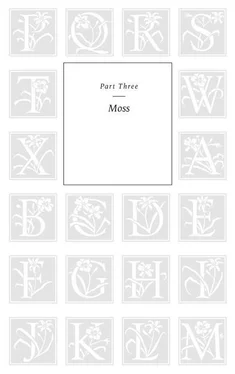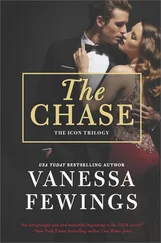Vanessa Diffenbaugh - The Language of Flowers
Здесь есть возможность читать онлайн «Vanessa Diffenbaugh - The Language of Flowers» весь текст электронной книги совершенно бесплатно (целиком полную версию без сокращений). В некоторых случаях можно слушать аудио, скачать через торрент в формате fb2 и присутствует краткое содержание. Жанр: Старинная литература, на английском языке. Описание произведения, (предисловие) а так же отзывы посетителей доступны на портале библиотеки ЛибКат.
- Название:The Language of Flowers
- Автор:
- Жанр:
- Год:неизвестен
- ISBN:нет данных
- Рейтинг книги:4 / 5. Голосов: 1
-
Избранное:Добавить в избранное
- Отзывы:
-
Ваша оценка:
- 80
- 1
- 2
- 3
- 4
- 5
The Language of Flowers: краткое содержание, описание и аннотация
Предлагаем к чтению аннотацию, описание, краткое содержание или предисловие (зависит от того, что написал сам автор книги «The Language of Flowers»). Если вы не нашли необходимую информацию о книге — напишите в комментариях, мы постараемся отыскать её.
The Language of Flowers — читать онлайн бесплатно полную книгу (весь текст) целиком
Ниже представлен текст книги, разбитый по страницам. Система сохранения места последней прочитанной страницы, позволяет с удобством читать онлайн бесплатно книгу «The Language of Flowers», без необходимости каждый раз заново искать на чём Вы остановились. Поставьте закладку, и сможете в любой момент перейти на страницу, на которой закончили чтение.
Интервал:
Закладка:
Scrambling back down the stairs, I stared at Elizabeth’s shoes intently, hoping she wouldn’t know I’d been listening. Finally, she emerged from the kitchen and limped down the steps. Her eyes were wiped dry but still glistened, and she looked lighter—happier, even—than I’d ever seen her. “Well, let me see if you’ve been successful,” she said. “Try them on.”
I put on her shoes, took them off, extracted a spine I’d missed underneath my big toe, and put them on again. I walked up and down the stairs three times.
“Thank you,” she said, slipping a shoe on her uninjured foot and sighing with pleasure. “Much, much better.” She stood up slowly. “Now run into the kitchen and grab an empty jam jar from the cupboard with the glasses, a dish towel, and the pair of scissors on the kitchen table.”
I did as she asked, and when I returned she was standing on the bottom step, testing her weight on her hurt foot. She looked from the road to her garden and back again as if trying to decide where to go.
“Common thistle is everywhere,” she said. “Which is perhaps why human beings are so relentlessly unkind to one another.” She took her first step toward the road and grimaced. “You’ll have to help me or we’ll never make it,” she said, reaching for my shoulder.
“Don’t you have a cane or something?” I asked, shrinking away from her touch.
Elizabeth laughed. “No, do you? I’m not an old lady, despite what you may think.” She reached toward me, and this time I didn’t retract. She was so tall she had to bend at the waist to lean on my shoulder. We took slow steps toward the road. She stopped once to readjust her shoe, and we kept walking. My shoulder burned beneath her hand.
“Here,” Elizabeth said, when we reached the road. She sat down on the gravel and leaned against the wooden post of the mailbox. “See? Everywhere.” She gestured to the ditch separating the highway from the rows of vines. It was about as deep as I was tall, full of stiff, dry plants, without a flower anywhere.
“I don’t see anything.” I was disappointed.
“Climb down in there,” she said. I turned around and slid down the steep dirt wall. She handed me the jam jar and scissors. “Look for dime-sized flowers that were once purple, although this time of year they’ve likely faded to brown like everything else in Northern California. They’re sharp, though, so pick them carefully when you find them.”
I took the jar and scissors, and crouched down into the weeds. The brush was thick, golden, and smelled like the end of summer. I cut a dry plant at the root. It stood tall in its place, supported by weeds on all sides. Detangling it, I threw it onto Elizabeth’s lap.
“Is that it?”
“Yes, but this one doesn’t have flowers. Keep looking.”
I scrambled up the side of the ditch a few inches to get a better view but still didn’t see anything purple. I picked up a rock and threw it as hard as I could in frustration. It hit the opposite wall and flew back in my direction so that I had to jump out of the way. Elizabeth laughed.
Leaping back into the weeds, I parted the brush with my hands and examined every dry stalk. “Here!” I said finally, snatching a clover-sized bud and throwing it into the jar. The flower looked like a small golden puffer fish with a faded tuft of purple hair. I climbed back to Elizabeth to show her the flower, which was bouncing around inside the jar like a living thing. I clapped my hand over the top to keep it from escaping.
“Thistle!” I said, handing her the jar. “For you,” I added. I reached out awkwardly and patted her once on the shoulder. It was perhaps the first time in my entire life I had initiated contact with another human being—at least the first time in my memory. Meredith had told me I was a clingy baby, reaching out and clutching hair, ears, or fingers if I could find them—the straps of my infant car seat if I could not—with pulsing purple fists. But I didn’t remember any of this, and so my action—the quick connection of the palm of my hand to Elizabeth’s shoulder blade—surprised me. I stepped back, glaring at her as if she had made me do it.
But Elizabeth just smiled. “If I didn’t know the meaning, I would be thrilled,” she said. “I think this is the kindest you’ve been to me, and all to express your hatred and mistrust of humankind.” For the second time that afternoon her eyes filled, and, like before, she did not look sad.
She reached out to hug me, but before she could draw me in, I slipped out of her arms and back into the ditch.
14 .
The solid form of the chair on which I sat began to liquefy. Without knowing how I got there, I lay on my stomach on the library floor, books spread in a semicircle around me. The more I read, the more I felt my understanding of the universe slip away from me. Columbine symbolized both desertion and folly; poppy, imagination and extravagance . The almond blossom, listed as indiscretion in Elizabeth’s dictionary, appeared in others as hope and occasionally thoughtlessness . The definitions were not only different, they were often contradictory. Even common thistle—the staple of my communication—appeared as misanthropy only when it wasn’t defined as austerity .
The temperature in the library rose with the sun. By mid-afternoon I was sweating, swiping at my forehead with a wet hand as if trying to wipe memories from a saturated mind. I had given Meredith peony, anger but also shame . Admitting shame was closer to an apology than I ever hoped to get with Meredith. If anything, she should be coming to me with bunches and bunches of peony, quilting peony-covered bedspreads, baking peony-covered cakes. If peony could be misinterpreted, how many times, to how many people, had I misspoken? The thought made my stomach turn.
My choices for the flower vendor hung as a threatening unknown. Rhododendron clung solidly to the definition of beware throughout every dictionary before me, but there were likely hundreds, if not thousands, more dictionaries in circulation. It was impossible to know how he had interpreted my messages or what he was thinking as he sat in the donut shop. It was past five o’clock. He would be waiting, his eyes on the door.
I had to go. Leaving books scattered on the library floor, I skipped down four flights of stairs and walked out into the darkening San Francisco sky.
It was almost six by the time I got to the donut shop. I opened the double glass doors and found him sitting alone in a booth, a half-dozen donuts in a pink box before him.
I walked over to the table but did not sit down.
“Rhododendron,” I demanded, as Elizabeth once had.
“Beware.”
“Mistletoe.”
“I surmount all obstacles.”
I nodded and continued. “Snapdragon?”
“Presumption.”
“White poplar?”
“Time.” I nodded again, scattering before him the few thistles I had collected on my walk across the city. “Common thistle,” he said. “Misanthropy.”
I sat down. It had been a test, and he had passed. My relief was disproportional to his five correct answers. Suddenly starving, I dug a maple bar out of the box. I hadn’t eaten anything all day.
“Why thistle?” he asked, helping himself to a chocolate old-fashioned.
“Because,” I said between huge bites, “it’s all you need to know about me.”
He finished his donut and started on another. He shook his head. “Not possible.”
I took a glazed and a sprinkled donut out of the box and set them on a napkin. He was eating so fast I was afraid the box would be empty before I finished my first.
Читать дальшеИнтервал:
Закладка:
Похожие книги на «The Language of Flowers»
Представляем Вашему вниманию похожие книги на «The Language of Flowers» списком для выбора. Мы отобрали схожую по названию и смыслу литературу в надежде предоставить читателям больше вариантов отыскать новые, интересные, ещё непрочитанные произведения.
Обсуждение, отзывы о книге «The Language of Flowers» и просто собственные мнения читателей. Оставьте ваши комментарии, напишите, что Вы думаете о произведении, его смысле или главных героях. Укажите что конкретно понравилось, а что нет, и почему Вы так считаете.












